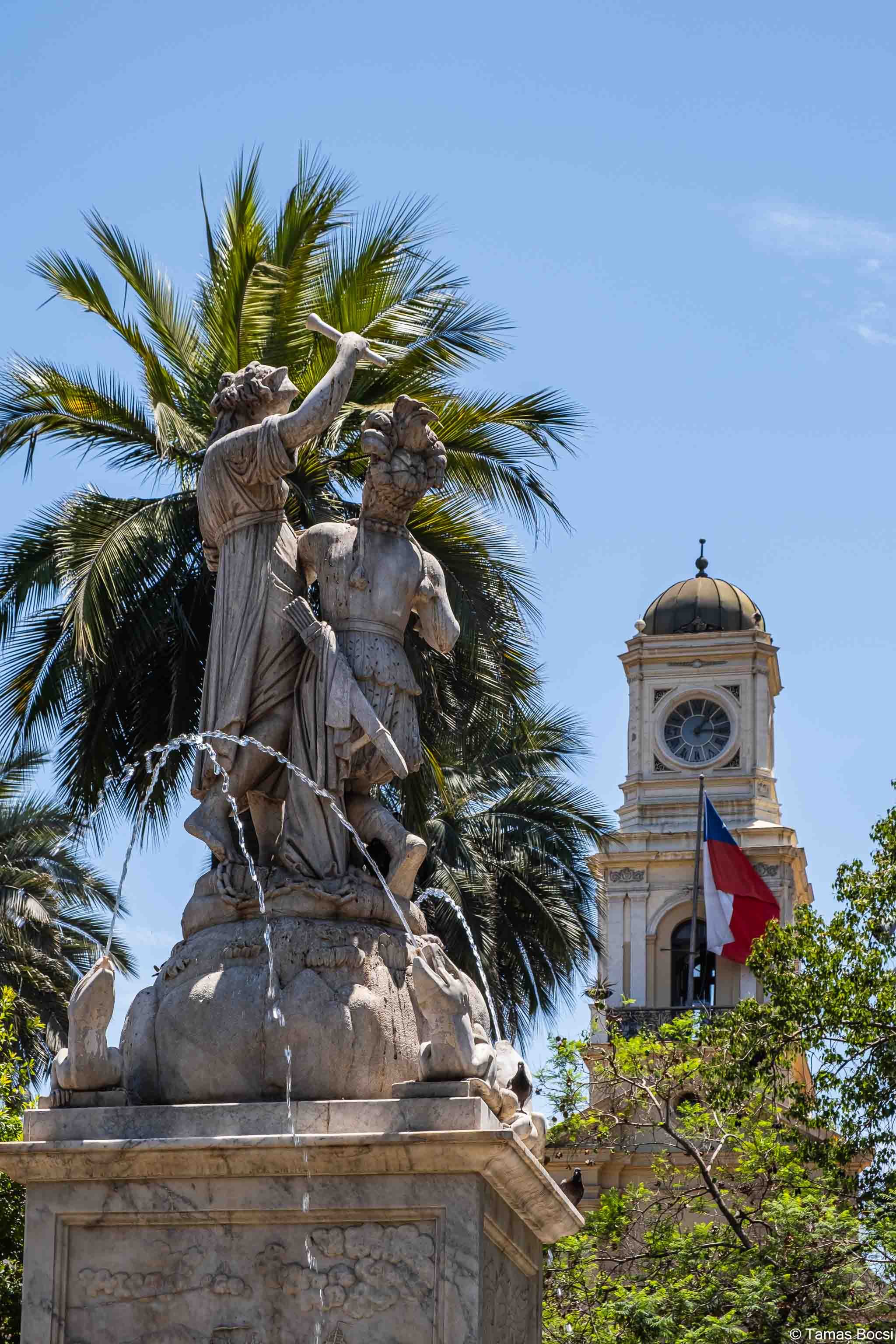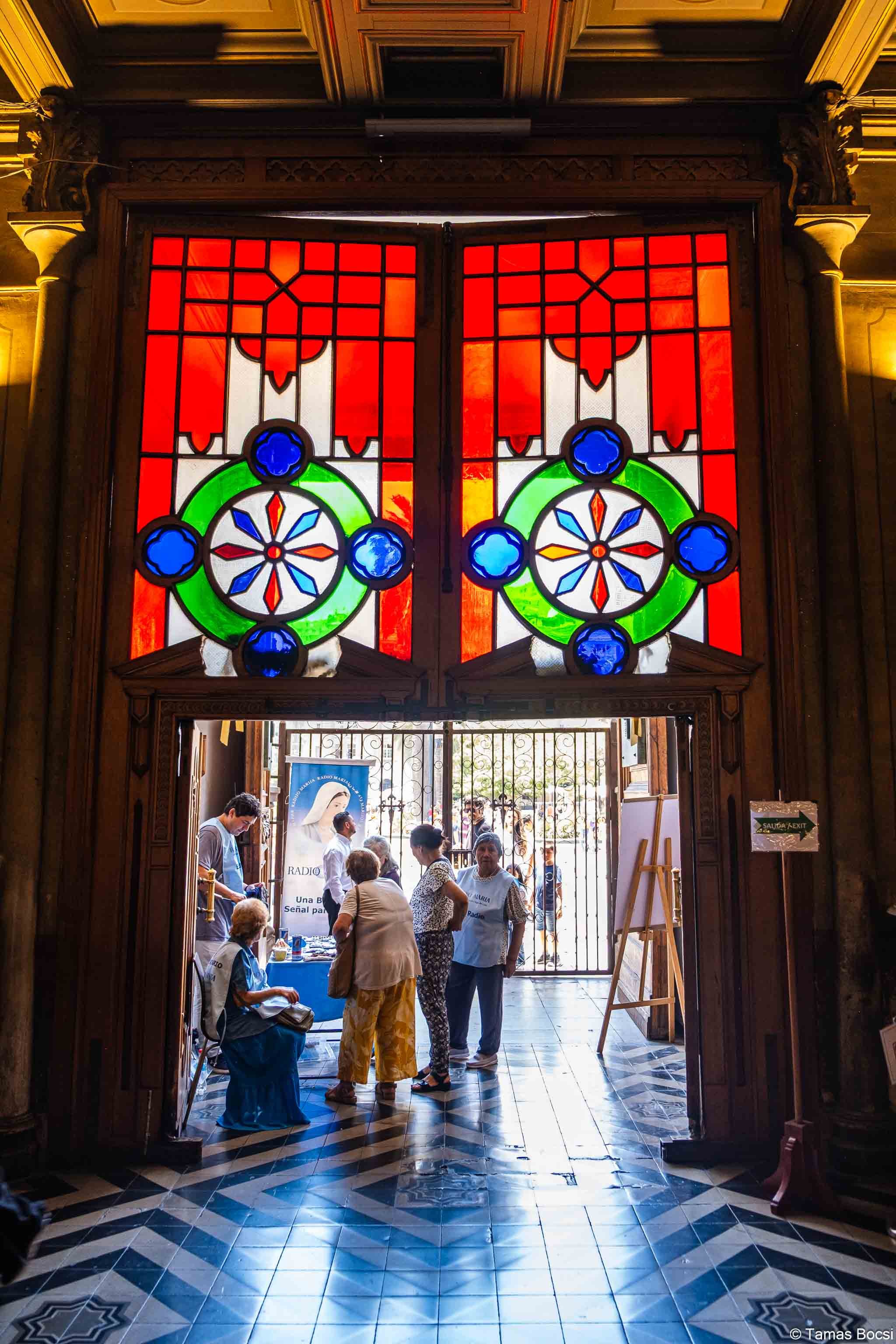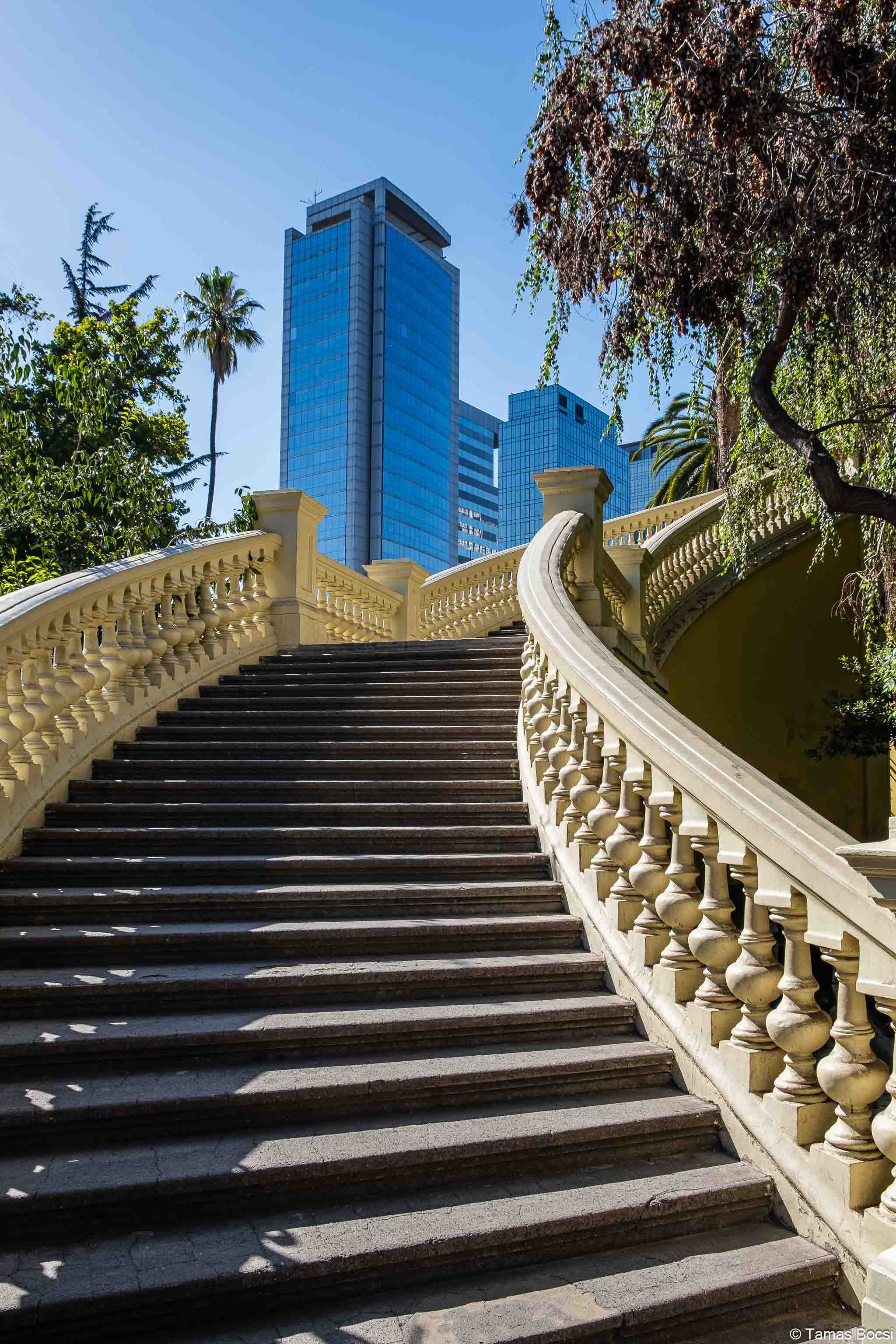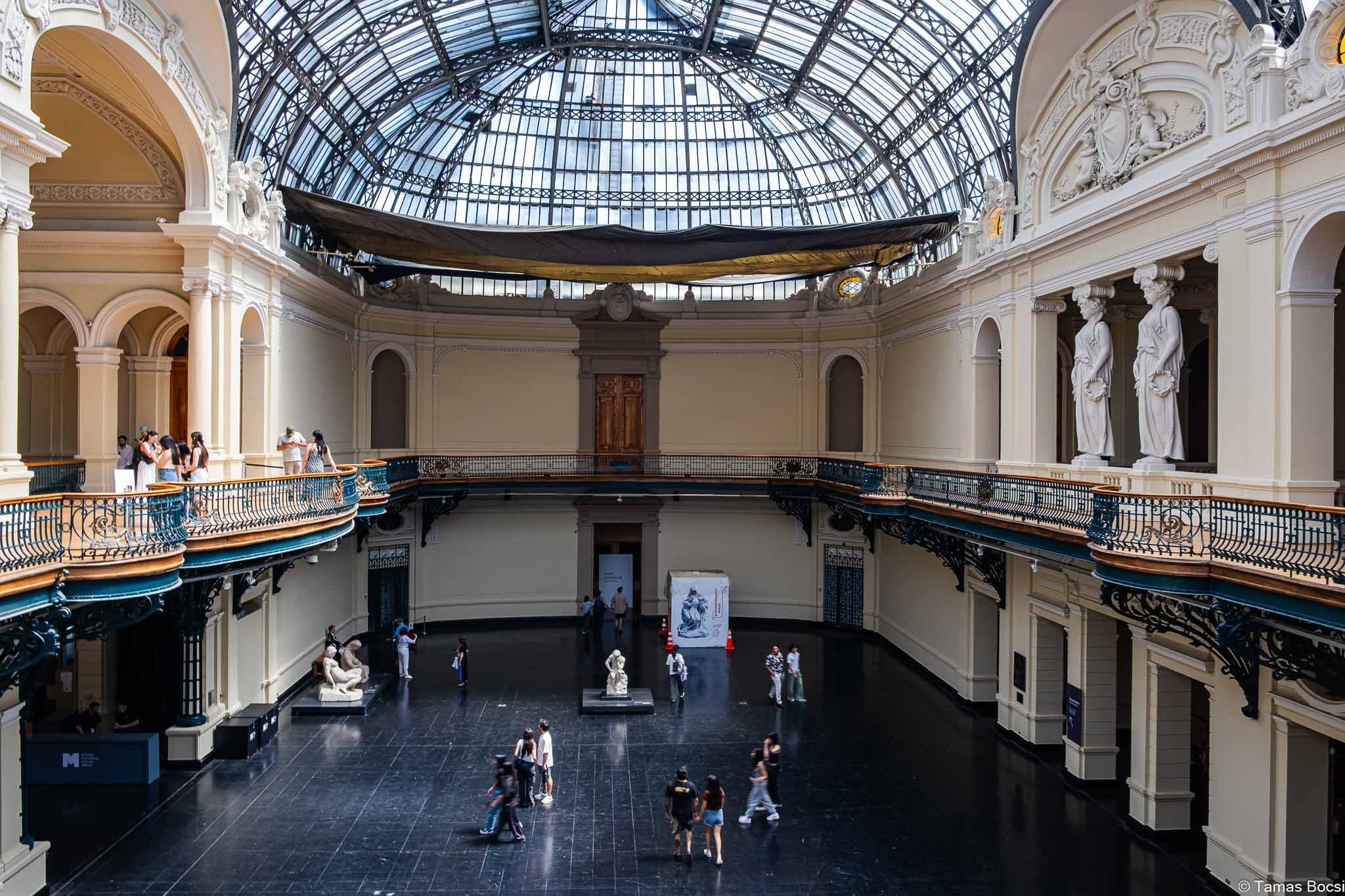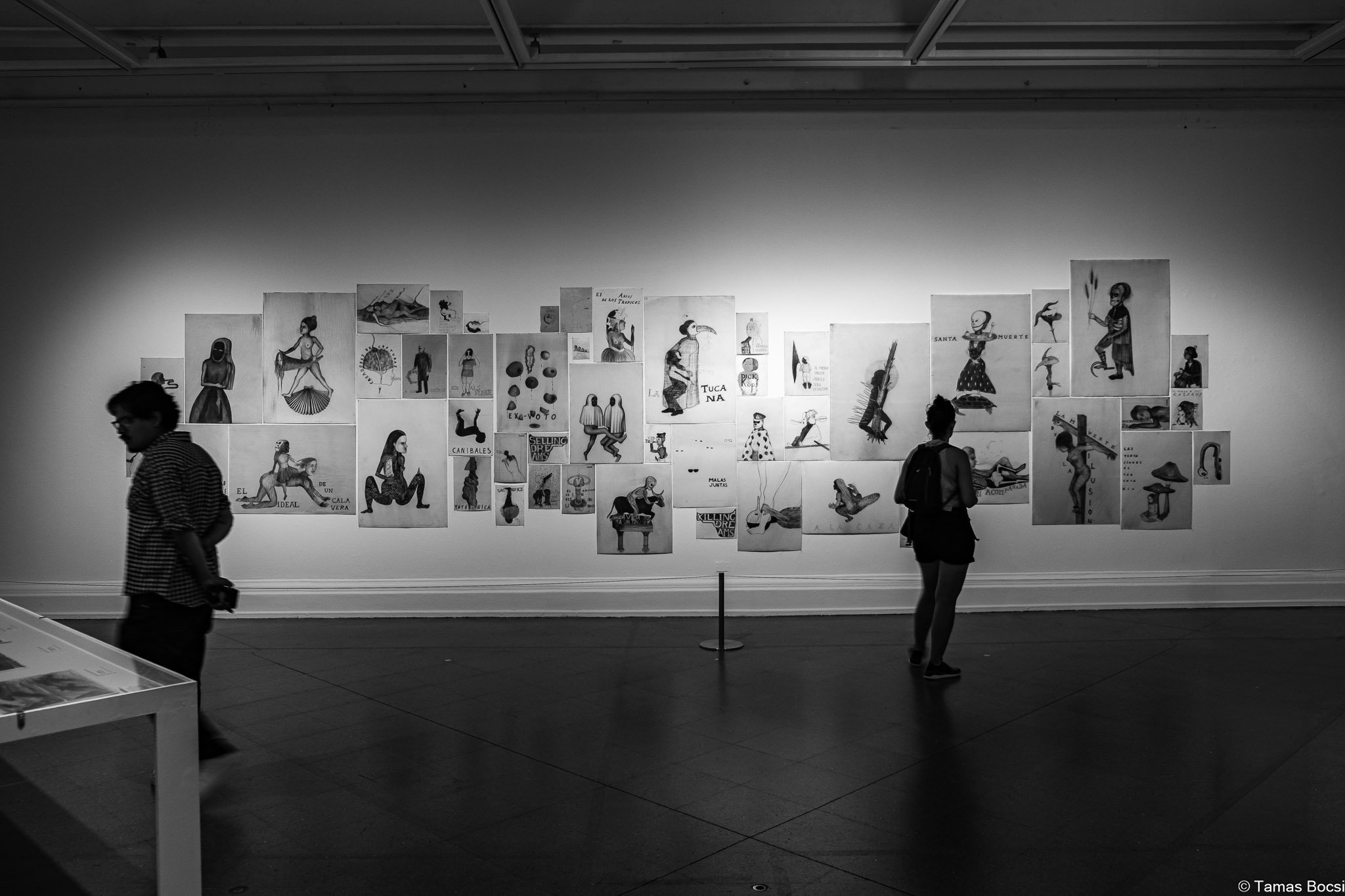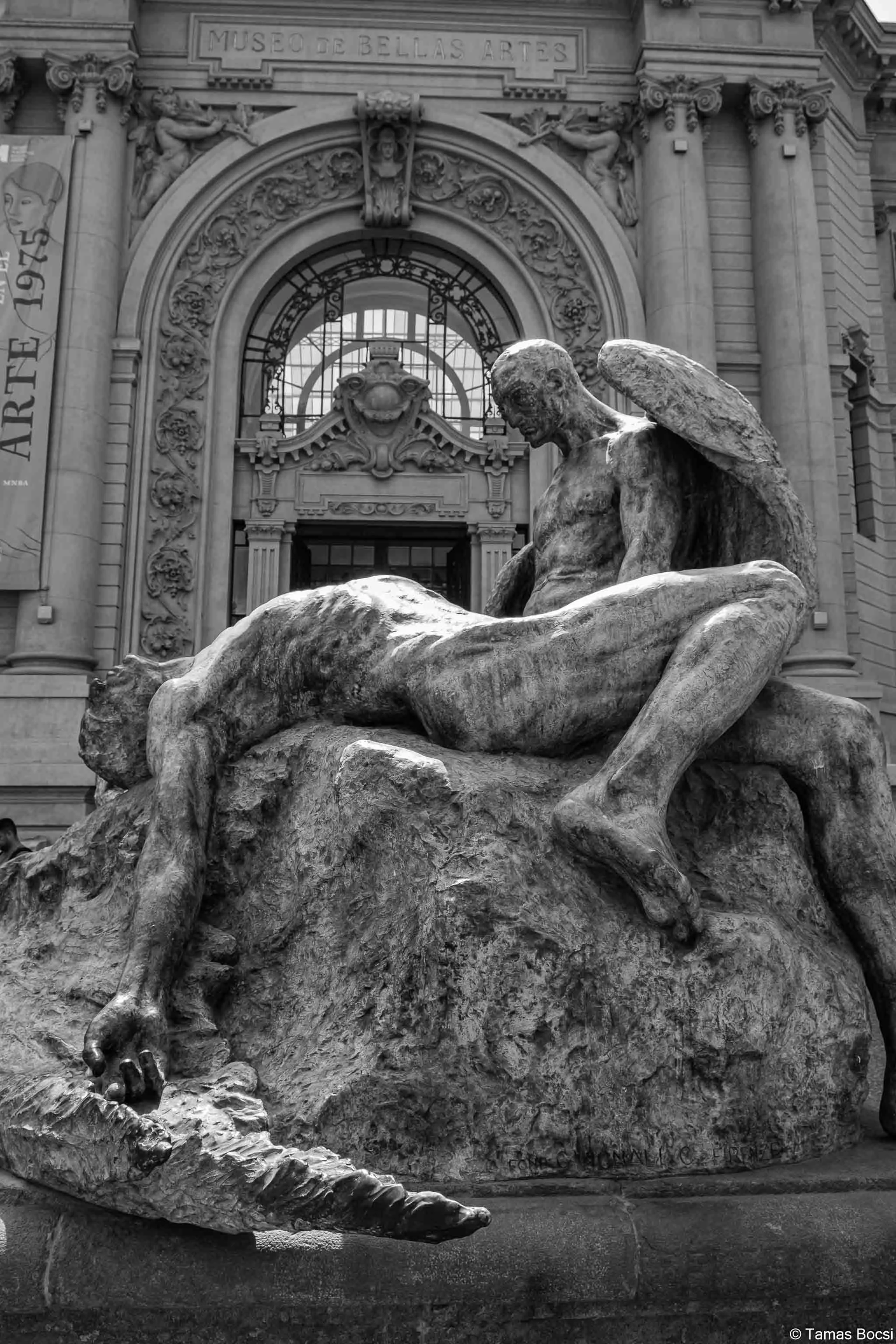Santiago de Chile, Chile – The Heart of the Andes
Nestled between the towering Andes and the vast Pacific, Santiago de Chile is a city where past and present intertwine seamlessly. Founded in 1541 by Spanish conquistador Pedro de Valdivia, its early days were marked by resilience, surviving indigenous resistance and natural disasters. Yet, the city flourished, becoming Chile’s political, cultural, and economic hub, a role it has played since independence in 1818.
Today, Santiago pulses with life: its historic barrios tell tales of colonial grandeur, while sleek skyscrapers signal a modern, ambitious future. Walk through the Plaza de Armas, where the city’s Spanish roots still echo, or explore Barrio Lastarria, a haven for art lovers and storytellers. Every corner whispers history while embracing innovation.
Whether you seek cultural immersion, outdoor adventures, or culinary delights, Santiago delivers in abundance. From the breathtaking views atop Cerro San Cristóbal to the hidden gems tucked into lively neighbourhoods, the city invites travellers to experience its charm, rhythm, and untamed spirit.
Essential Information for Your Visit to Santiago de Chile
Touchdown in Santiago de Chile – Start Your Adventure
By Air: Arturo Merino Benítez International Airport (SCL) welcomes travellers with modern amenities and efficient transport links. Expect a smooth arrival with taxis, ride-sharing services, and airport shuttles ready to whisk you into the city.
By Train/Bus: While Santiago lacks a direct international train service, long-distance buses connect it to neighbouring countries. The Terminal Alameda and Terminal San Borja serve as major hubs, offering comfortable coaches to and from Argentina, Peru, and beyond.
By Car: Driving into Santiago offers a scenic approach, especially from the coast or the Andes. Well-maintained highways like Ruta 5 ensure a smooth journey, though city traffic can be intense. Parking is available but limited in central areas.
Navigating Santiago de Chile's Bustling Streets
Public Transportation: The Metro de Santiago is the backbone of urban mobility, boasting clean, efficient, and affordable service. Buses complement the metro, with the Red Metropolitana de Movilidad offering extensive coverage.
Biking/Walking: Santiago’s pedestrian-friendly neighbourhoods and dedicated cycling lanes make exploring on foot or by bike a joy. Parque Forestal and Providencia are particularly inviting for leisurely strolls.
Taxi and Ride-Sharing: Traditional taxis are abundant, but ride-sharing apps like Uber, Cabify, and Didi provide reliable alternatives with transparent pricing.
Local trains - Estación Central
Metro - Santiago de Chile
Metro station in Santiago de Chile
Metro - Santiago de Chile
Bus in Santiago de Chile
Bus in Santiago de Chile
Bus in Santiago de Chile
Pedestrain street in Santiago de Chile
Walking around Santiago de Chile
Street in Santiago de Chile
Best Neighbourhoods to Stay
First-Time Explorers: Lastarria is a cultural haven with boutique hotels, art galleries, and vibrant nightlife, making it the perfect introduction to Santiago. Stroll through its cobblestone streets, discovering charming cafés and theatres that breathe life into the city’s creative spirit. With its central location and rich history, it’s an ideal spot for first-time visitors to soak in Santiago’s essence.
Budget Adventurers: Bellavista is bohemian and lively, a playground for free spirits offering affordable hostels, colourful murals, and a thriving nightlife scene. The area pulses with energy, from live music venues to bustling markets selling local crafts. For those seeking adventure on a budget, it’s the perfect mix of vibrancy and affordability.
Family Getaways: Providencia is safe, well-connected, and brimming with green spaces, making it a fantastic choice for families looking for a relaxed yet central stay. Parks like Parque de las Esculturas and Parque Inés de Suárez provide tranquil escapes where children can play freely. With plenty of restaurants and easy metro access, it strikes a balance between comfort and convenience.
Seasoned Wanderers: Vitacura is upscale and sophisticated, offering a refined experience for seasoned travellers who seek elegance and exclusivity. High-end restaurants, luxury boutiques, and world-class museums like Museo de la Moda add to its distinguished charm. Its peaceful streets and proximity to natural beauty make it a perfect retreat for experienced explorers.
Senior Explorers: Ñuñoa is charming and laid-back, with leafy streets and a welcoming atmosphere, ideal for those who appreciate a slower pace. Traditional markets, cosy cafés, and local theatres offer cultural immersion without the rush of downtown. Its neighbourly feel, coupled with easy transport links, makes it a pleasant choice for senior travellers seeking relaxation and discovery.
View over Santiago de Chile from Cerro San Cristóbal
View over Santiago de Chile from Cerro Santa Lucía
Street art in Barrio Yungay
Street in Lastarria
Street market at night in Lastarria
Street art close to Mercado Central
Streets in Bellavista
Sunset in Barrio Italia
Street art in Barrio Italia
Iconic Attractions & Hidden Gems – Your Photo Perfect Spots
Plaza de Armas & Santiago Metropolitan Cathedral – Catedral Metropolitana de Santiago de Chile
Plaza de Armas is the historic heart of Santiago, where colonial architecture meets the pulse of modern city life. Surrounded by palm trees and lively street performers, it offers a vibrant atmosphere perfect for soaking in Santiago’s essence. The square has been the city’s central gathering place since its founding in 1541, making it a must-visit for history lovers. Standing majestically on Plaza de Armas, the Santiago Metropolitan Cathedral is a masterpiece of neoclassical architecture. Built between 1748 and 1906, it has survived earthquakes and restorations, maintaining its grandeur. Inside, intricate altars and stained-glass windows create a serene, spiritual ambiance. The cathedral is a national monument and a testament to Chile’s deep-rooted Catholic heritage.
Plaza de Armas & Santiago Metropolitan Church
Santiago sin in Plaza de Armas
Chess players in Plaza de Armas
Statue in Plaza de Armas
Statue in Plaza de Armas
Museum of National History of Chile
Santiago Metropolitan Church
Santiago Metropolitan Church - Entrance
Santiago Metropolitan Church - interior
Santiago Metropolitan Church - Altar
Santiago Metropolitan Church - ceiling
Altar piece in Santiago Metropolitan Church
Statue in Santiago Metropolitan Church
Towers of Santiago Metropolitan Church
Statue in Santiago Metropolitan Church
Maria Statue on Santiago Metropolitan Church
Santiago Metropolitan Church
Entrance in Santiago Metropolitan Church
Palacio de La Moneda & Bandera Bicentenario
The Palacio de La Moneda, Chile’s presidential palace, is an architectural gem with a rich political history. Originally a colonial mint, it became the seat of government in 1845, witnessing pivotal moments in Chilean history. Its grand courtyards and stately halls reflect the country’s evolution from colonial rule to modern democracy. Towering over Plaza de la Ciudadanía, the Bandera Bicentenario is a striking symbol of Chilean pride. Raised in 2010 to commemorate 200 years of independence, this massive flag waves as a reminder of unity and resilience. Its imposing presence makes it a perfect backdrop for patriotic photography.
Palacio de La Moneda & Bandera Bicentenario
Palacio de La Moneda - front view
Pool in front of Palacio de La Moneda
Palacio de La Moneda - Black & White
Plague close to Palacio de La Moneda
Palacio de La Moneda with flags
Entrance to Palacio de La Moneda
Flags at Palacio de La Moneda
Palacio de La Moneda at night
Palacio de La Moneda at night
Bandera Bicentenario
Bandera Bicentenario
Bandera Bicentenario
Santuario Cerro San Cristóbal
Perched atop Cerro San Cristóbal, the Santuario de la Inmaculada Concepción offers breathtaking views of Santiago. The 14-metre Virgin Mary statue, illuminated at night, is visible from across the city. Visitors can reach the summit via funicular or cable car, enjoying scenic rides through the Parque Metropolitano. The sanctuary is a peaceful retreat, where Pope John Paul II once blessed Santiago. Locals recommend visiting after rainfall, when the Andes appear close enough to touch.
Funicular up to Cerro San Cristobal
View point Cerro San Cristobal
View over the city from Cerro San Cristobal
Santuario Cerro San Cristobal
Stairs up to Santuario Cerro San Cristobal
Chapel under Santuario Cerro San Cristobal
Santuario Cerro San Cristibal
Cross on Cerro San Cristobal
View over city from Cerro San Cristobal
View over city from Cerro San Cristobal
Cerro Santa Lucía with Fuente Neptuno & Castillo Hidalgo
Once an indigenous sacred site, Cerro Santa Lucía is now a beautifully landscaped hill offering panoramic city views. Its winding staircases lead to historic terraces, making it a favourite spot for photographers.At the entrance of Cerro Santa Lucía, the Fuente Neptuno is a grand fountain dedicated to the Roman god of the sea. Originally installed in 1859, it was later moved to its current location, adding a touch of European elegance to the hill. Built in 1816, Castillo Hidalgo was originally a fortress designed to protect Santiago. Today, it serves as an event venue, blending history with modern celebrations.
Cerro Santa Lucía
Fuente Neptuno in Cerro Santa Lucía
Stairs up to Fuente Neptuno in Cerro Santa Lucía
Fuente Neptuno in Cerro Santa Lucía
Dome of Fuente Neptuno in Cerro Santa Lucía
Fuente Neptuno in Cerro Santa Lucía
Chapel in Cerro Santa Lucía
Chapel in Cerro Santa Lucía
Gate in Cerro Santa Lucía
View on Cerro San Cristobal from Cerro Santa Lucía
View over city from Cerro Santa Lucía
View over city from Cerro Santa Lucía
View over city from Cerro Santa Lucía
View over city from Cerro Santa Lucía
Museo Chileno de Arte Precolombino, Corte Suprema de Justicia de Chile & Cámara de Diputados de Chile
This museum houses an extraordinary collection of pre-Columbian artifacts, showcasing the artistic heritage of indigenous cultures across the Americas. Founded in 1981, it features textiles, ceramics, and sculptures dating back thousands of years. Its exhibitions offer a deep dive into the craftsmanship and symbolism of ancient civilizations. The Palacio de los Tribunales de Justicia, home to Chile’s Supreme Court, is an architectural marvel. Built in 1930, its neoclassical design reflects the country’s legal traditions. Located in Valparaíso, the Cámara de Diputados is where Chile’s legislative decisions take shape. Its grand halls have witnessed key moments in the nation’s political history.
Museo Chileno de Arte Precolombino
Entrance to Museo Chileno de Arte Precolombino
Courtyard in Museo Chileno de Arte Precolombino
Statue in Museo Chileno de Arte Precolombino
Room in Museo Chileno de Arte Precolombino
Statues in Museo Chileno de Arte Precolombino
Hall in Museo Chileno de Arte Precolombino
Corte Suprema de Justicia de Chile
Corte Suprema de Justicia de Chile
Statue in front of Corte Suprema de Justicia de Chile
Cámara de Diputados de Chile
Torre Costanera
At 300 metres, Torre Costanera is the tallest skyscraper in Latin America. Its Sky Costanera observation deck offers 360-degree views of Santiago, making it a prime spot for sunset photography.
View on Torre Costanera from Cerro San Cristobal
Torre Costanera
Bus in front of Torre Costanera
Torre Costanera - Black & White
Torre Costanera
Passenger bridge to Torre Costanera
Mercado Central de Santiago
A feast for the senses, Mercado Central is Santiago’s culinary hub, famous for its fresh seafood and traditional Chilean dishes. Established in 1872, its iron structure was designed in Scotland and shipped to Chile. The market’s lively atmosphere and historic charm make it a must-visit for food lovers.
Mercad Central de Santiago
Central hall in Mercad Central de Santiago
Ceiling of Mercad Central de Santiago
Ceiling of Mercad Central de Santiago
Fish stalls in Mercad Central de Santiago
Fish stall in Mercad Central de Santiago
Corridor in Mercad Central de Santiago
Street art around Mercad Central de Santiago
Museo Nacional de Bellas Artes
Founded in 1880, the Museo Nacional de Bellas Artes is Chile’s oldest art museum. Its Beaux-Arts building, inspired by the Petit Palais in Paris, houses an impressive collection of Chilean and international masterpieces.
Museo Nacional de Bellas Artes
Central hall in Museo Nacional de Bellas Artes
Central hall in Museo Nacional de Bellas Artes
Visitors in Museo Nacional de Bellas Artes - Black & White
Central hall in Museo Nacional de Bellas Artes
Art in Museo Nacional de Bellas Artes
Art in Museo Nacional de Bellas Artes - Black & White
Hall in Museo Nacional de Bellas Artes
Hall in Museo Nacional de Bellas Artes
Statue in front of Museo Nacional de Bellas Artes - Black & White
Church of San Francisco – Iglesia de San Francisco
The Iglesia de San Francisco is one of Santiago’s oldest colonial-era buildings, originally constructed in 1622 and remarkably resilient against numerous earthquakes. Its striking Victorian-style bell tower, designed by Fermín Vivaceta, was added in the mid-1800s, replacing earlier versions lost to seismic activity. Inside, the church features a stunning Mudéjar-style coffered ceiling, reflecting the fusion of Spanish and indigenous craftsmanship.
Church of San Francisco
Tower of Church of San Francisco
Church of San Francisco - interior
Church of San Francisco - interior
Ceiling in Church of San Francisco
Statue in Church of San Francisco
Madonna statue in Church of San Francisco
Church of San Francisco at night
Statue close to Church of San Francisco
Biblioteca Nacional de Chile
Established in 1813, the Biblioteca Nacional is one of Chile’s oldest institutions. Its grand neoclassical halls preserve centuries of literary and historical treasures.
Bibliotec Nacional de Chile
Entrance to Bibliotec Nacional de Chile
Bibliotec Nacional de Chile
Bibliotec Nacional de Chile - at sunset
Bibliotec Nacional de Chile
Bibliotec Nacional de Chile - at dawn
Bibliotec Nacional de Chile - at night
Teatro Municipal de Santiago
Since 1857, the Teatro Municipal has been Santiago’s premier venue for opera, ballet, and classical music. Its French-inspired architecture and rich cultural legacy make it a landmark of artistic excellence.
Teatro Municipal de Santiago
Teatro Municipal de Santiago
Teatro Municipal de Santiago
Arches of Teatro Municipal de Santiago
Entrance doors Teatro Municipal de Santiago
Square in front of Teatro Municipal de Santiago
Teatro Municipal de Santiago
Bellavista
Bellavista is Santiago’s artistic and nightlife hub, known for its colourful murals, lively bars, and cultural spaces. Once farmland on the outskirts of the city, it evolved into a creative haven, attracting intellectuals and artists, including Pablo Neruda, whose home, La Chascona, remains a key landmark. Today, Bellavista’s vibrant streets, bustling markets, and eclectic energy make it a must-visit for those seeking Santiago’s cultural heartbeat.
Bellavista
Street art in Bellavista
Street in Bellavista
Restaurants in Bellavista
Courtyard in Bellavista
Boulevard in Bellavista
Restaurant garde in Bellavista
Street art in Bellavista
Barrio Italia
Barrio Italia is a historic neighbourhood that once housed Italian immigrants, shaping its identity as Santiago’s Little Italy. Over time, it transformed into a hub for design, gastronomy, and artisanal craftsmanship, with antique shops and independent boutiques lining its streets. Whether exploring its heritage buildings or indulging in its diverse culinary offerings, Barrio Italia offers a charming mix of tradition and modern creativity.
Street in Barrio Italia
Bars in Barrio Italia
Indoor market in Barrio Italia
Street art in Barrio Italia
Street art in Barrio Italia
Street art in Barrio Italia
Sunset in Barrio Italia
Barrio Lastarria
Barrio Lastarria is a cultural and artistic hub, where cobblestone streets lead to indie theatres, museums, and charming cafés. With its rich history and vibrant atmosphere, it blends colonial heritage with contemporary creativity, making it a favourite among locals and travellers alike. Whether exploring the Gabriela Mistral Cultural Centre or dining in one of its many restaurants, Lastarria offers an immersive glimpse into Santiago’s artistic soul.
Nightmarket in Lastarria
Beer garden in Lastarria at night
Street art in Lastarria
Chipe Libre - República Independiente del Pisco in Lastarria
Pontificia Universidad Católica de Chile
Jesus statue on Pontificia Universidad Católica de Chile
Jesus statue on Pontificia Universidad Católica de Chile at night
Planetario Chile & Estación Central
One of Latin America’s largest planetariums, Planetario Chile offers immersive astronomy experiences. Its 20-metre dome hosts stunning celestial projections, making it a must-visit for stargazers. A historic gateway to Chile’s railway network, Estación Central has connected Santiago to the south since 1857. Its iron structure, designed in France, stands as a testament to Chile’s industrial heritage.
Planetario Chile
Planetario Chile
Planetario Chile
Planetario Chile
Sun dial at Planetario Chile
Estacion Central
Entrance to Estacion Central
Roof of Estacion Central
Waiting hall Estacion Central
Side entrance to Estacion Central
Blogs About Santiago de Chile
By immersing yourself in Santiago de Chile’s vivid sensory experiences and exploring its hidden depths, you’ll uncover a city that offers endless adventures and unforgettable memories. Ready your camera and your spirit for an extraordinary journey.























